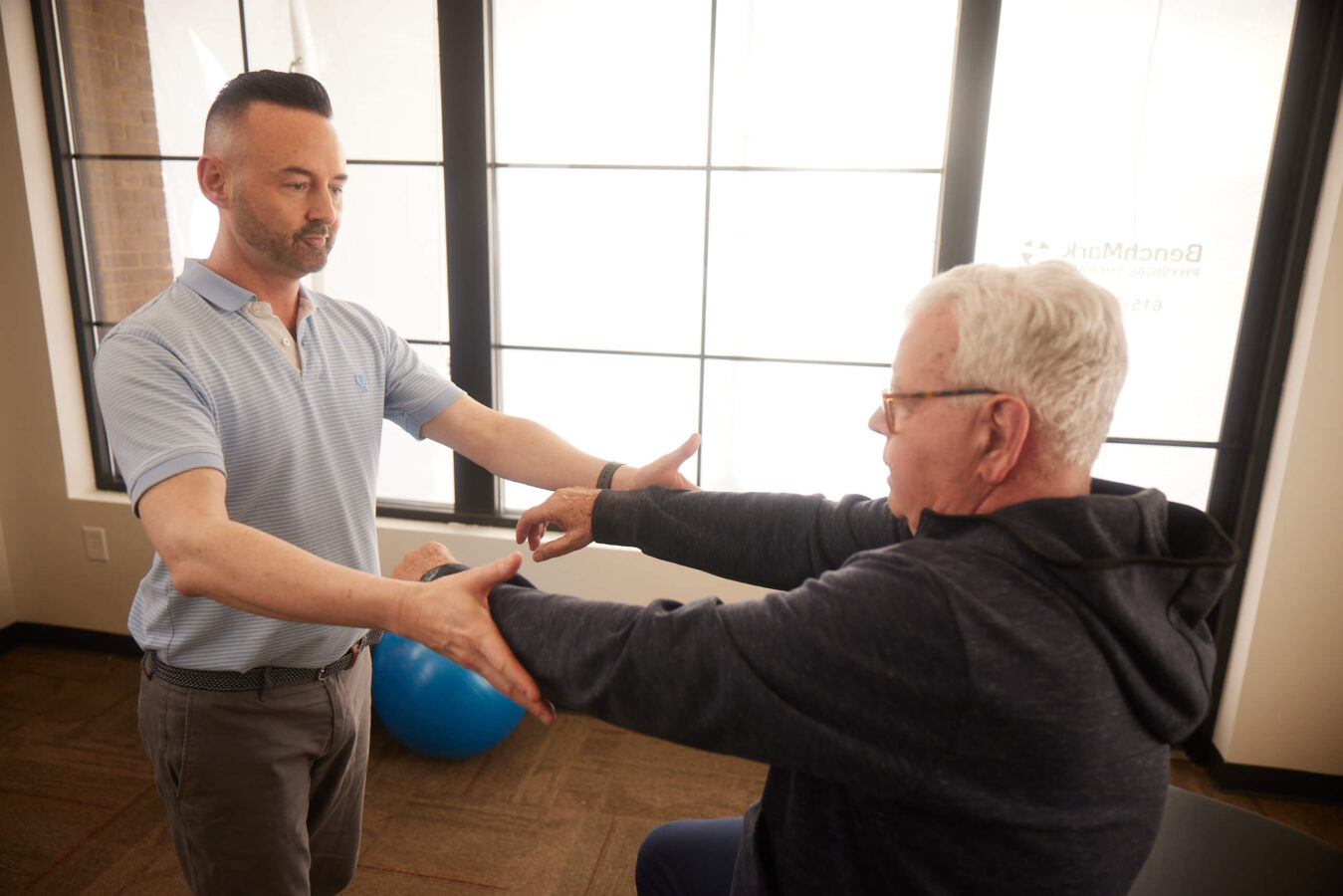
Weakness and fatigue are two of the most common nonspecific medical complaints clinicians encounter. And because they are linked to so many different medical conditions, it takes time and care to diagnose and treat them properly. Very often, the key to determining what is the cause of generalized weakness for a patient is finding out what’s not causing the symptoms before diagnosing what is causing them.
Although fatigue and weakness often occur together, they are actually two different symptoms. Generalized weakness refers to a decrease in muscle strength. It may take extra effort to move your arms, legs, or other parts of the body. General weakness associated with exertion usually resolve within a few days. Sudden weakness, weakness that gets progressively worse, or weakness in combination with loss of function should be assessed as soon as possible.
As we’ve noted, the list of potential conditions causing generalized weakness is extensive. We’ll touch upon the most common.
Certain infections including respiratory infections and urinary tract infections (UTIs) can cause weakness. Weakness is also sometimes a sign of a viral infection. Epstein-Barr is the virus that causes mononucleosis. Weakness with fatigue, fever, and sore throat are all symptoms of Epstein-Barr. Infections are detected through blood, tissue, urine, and stool samples.
The thyroid gland regulates the way the body utilizes energy. In people with hypothyroidism, or underactive thyroid, the gland does not make enough thyroid hormones to meet the body’s needs. Nearly four in five people with hypothyroidism have hypothyroid myopathy which is characterized by muscle weakness, aches, and pains.
Electrolytes are minerals that are essential for many key processes in the body, including muscle function. If you are low or high in sodium, potassium, and calcium, for example, you may have weakness among other symptoms. Proper hydration is essential to maintain electrolyte balance and support healthy function of all the body’s systems.
Hypoglycemia, or low blood sugar, is a condition where glucose levels in the blood dip low enough to cause weakness and other symptoms. Diabetes, certain liver and kidney conditions, some medications, skipping meals, and drinking excess alcohol may increase the risk of hypoglycemia.
Sarcopenia is the loss of muscle strength and mass and loss of muscle function and strength, generally in older adults. It is linked to a decline in mobility and independence in the senior population.
Hormonal changes, inflammation, and lifestyle factors that are common with aging all seem to increase the risk of sarcopenia. Patients with sarcopenia may find physical therapy highly-effective to regain and/or maintain strength, function, and mobility well into the golden years.
Conditions that cause shortness of breath can contribute to generalized weakness and fatigue. If there is a lack of oxygen, or a buildup of CO2 in the blood, the body’s cells and tissues don’t get the oxygen they need for optimal function.
Fatigue is tiredness that may or may not be associated with exertion. It is a lingering tired feeling that becomes limiting. Someone with fatigue may experience ongoing, unexplained, persistent exhaustion that interferes with work, exercise, sleep, and relationships.
They may find it hard to focus on daily tasks and typically do not feel rested no matter how much sleep they get. The causes of fatigue can be, “medical, psychiatric, or physiologic” and they should not be confused with shortness of breath, limited mobility, or generalized malaise.
Like general weakness, fatigue has an extensive list of possible causes. Here are the conditions most commonly associated with prolonged, unexplained fatigue.
Anemia is a health condition where you don’t have enough red blood cells for any number of reasons. This condition is common, affecting more than 5.6% of people in the U.S. it is diagnosed with a simple blood test and usually treated with iron-rich foods and iron supplements. Fatigue, sadness, and helplessness are all possible signs of anemia.
Intolerances to certain substances and foods can zap you of your energy and cause fatigue and sleepiness. If you suspect an allergy, ask your healthcare provider about the elimination diet to rule out certain foods and see an allergy specialist for more extensive testing.
Fatigue is also a common sign of mood disorders like anxiety, depression, and bipolar disorder. Some research shows that certain psychiatric disorders also increase the risk of chronic fatigue in the future. A comprehensive approach to treating mood disorders is important to address both the emotional challenges and physical symptoms in patients experiencing mood disorders to improve one’s overall well-being.
Rheumatoid arthritis (RA) is a form of inflammatory arthritis where the body’s immune system mistakenly attacks its own tissues. Joint pain, stiffness, and deformity are common in patients with RA, as are fever, fatigue, and loss of appetite. Initially it can be difficult for people with RA to get moving, but physical therapy for arthritis is beneficial to help them maintain and improve function. Aquatic physical therapy is a fun, safe, and gentle way to exercise that won’t stress the joints.
Fibromyalgia is a chronic condition that causes fatigue and pain and tenderness throughout the body. While the direct cause is unknown, people with certain diseases are more likely to develop fibromyalgia including osteoarthritis, rheumatoid arthritis, and lupus. Exercise is a key part of fibromyalgia therapy. Patients can team up with a physical therapist to plan a safe, approved exercise program to feel and move better.
According to Harvard University, new and constant fatigue is a common yet overlooked sign of a heart problem for many patients. Fatigue related to heart disease is often experienced after an activity that should be easy, like walking up the steps. For many patients, medication and other treatments for heart conditions can reduce fatigue.
Fatigue is also a common sign of many bacterial and viral infections including: the flu, mononucleosis, pneumonia, and COVID-19. Fatigue linked to infection often presents with fever, headaches, body aches, loss of appetite, and shortness of breath. While fatigue often improves once the infection is treated, in cases like COVID-19 and mononucleosis, fatigue can be long-lasting.
The term “sleep disorder” encompasses a group of conditions that interrupt sleep or prevent someone from getting restful and restorative sleep. Sleep disorders are not only frustrating, but they can also lead to more serious health problems like obesity, diabetes, heart attack and stroke. Losing one night of sleep is going to leave you feeling a bit groggy, and those effects are increased with multiple, consecutive nights of lost sleep.
Sometimes fatigue is a “side effect” of your lifestyle. If you burn the candle at both ends, don’t take time to rest and recharge, or you don’t maintain a healthy lifestyle, you aren’t going to feel your best.
Make sure you are getting enough sleep, exercising often, and consuming a variety of nutrient-dense foods. Don’t smoke and limit your alcohol intake (if you drink.) If you need to lose weight, talk to your healthcare provider and physical therapist about gradually increasing your physical activity and changes you can make to combat fatigue and lower your risk of health problems in the future.
Certainly, occasional tiredness is normal and can often be attributed to a change in our daily habits. If you stayed up into the wee hours binging on your favorite TV series, or you’re just getting over the flu, it’s easy to see why you’re feeling sleepy or lethargic. And you’re probably going to have some muscle weakness after completing an intense work out or strenuous hike, for example.
But if you have unexplained weakness and fatigue that aren’t subsiding, you should see your healthcare provider. Over time, chronic weakness and fatigue can take a toll on your physical and emotional health and well-being.
It’s important to have a physical exam and lab tests to rule out certain health conditions and determine the root causes of general body weakness and fatigue. Only then can you find the appropriate course of treatment and take steps to feel better. To find out how you can feel and move better with physical therapy, find a clinic near you.
